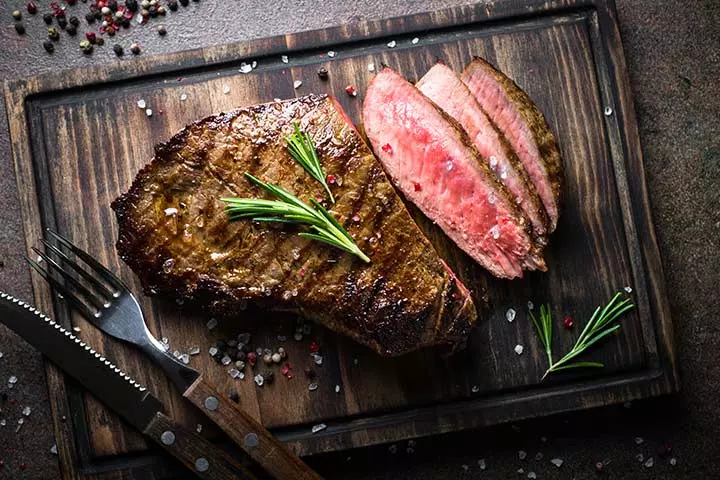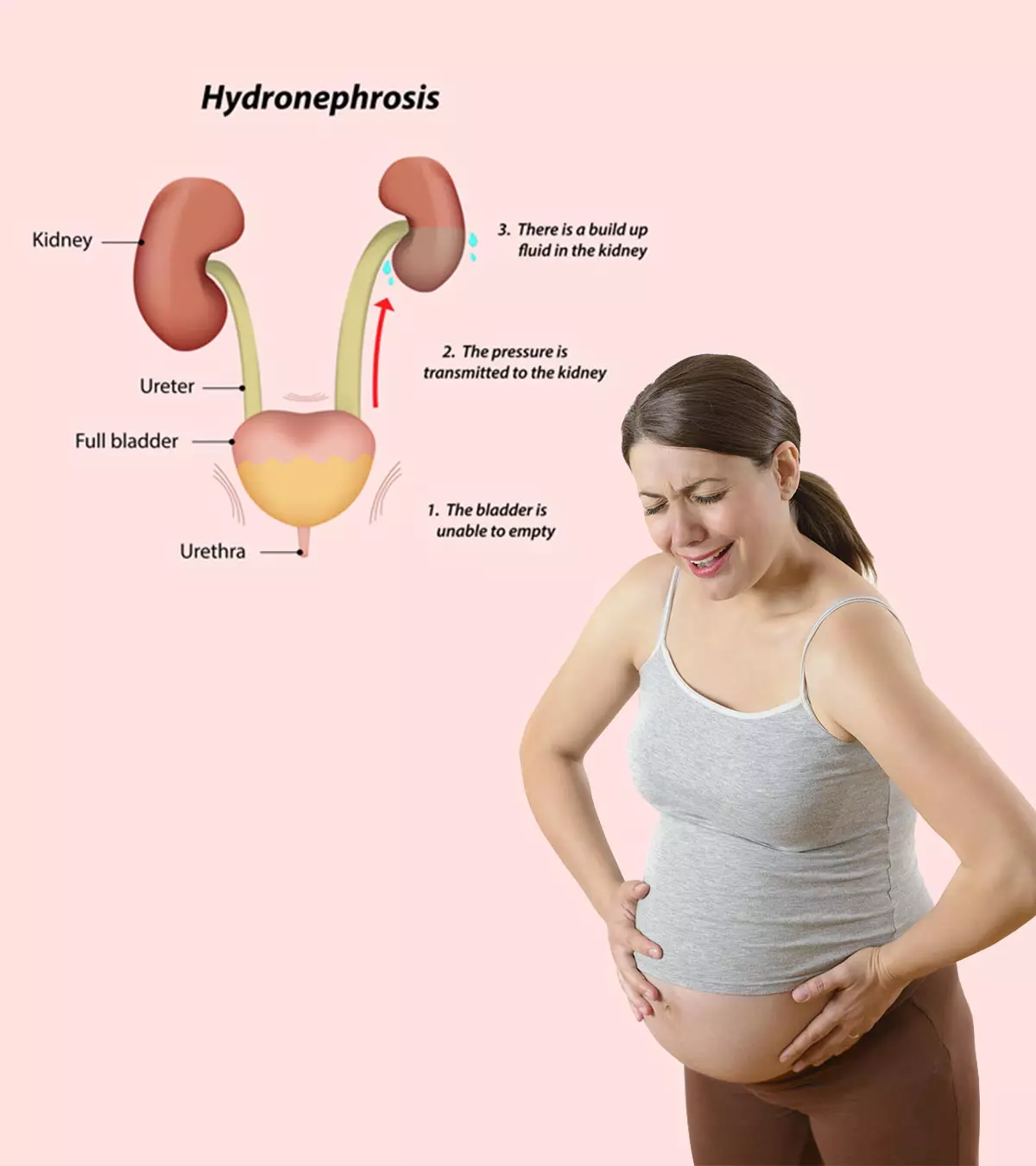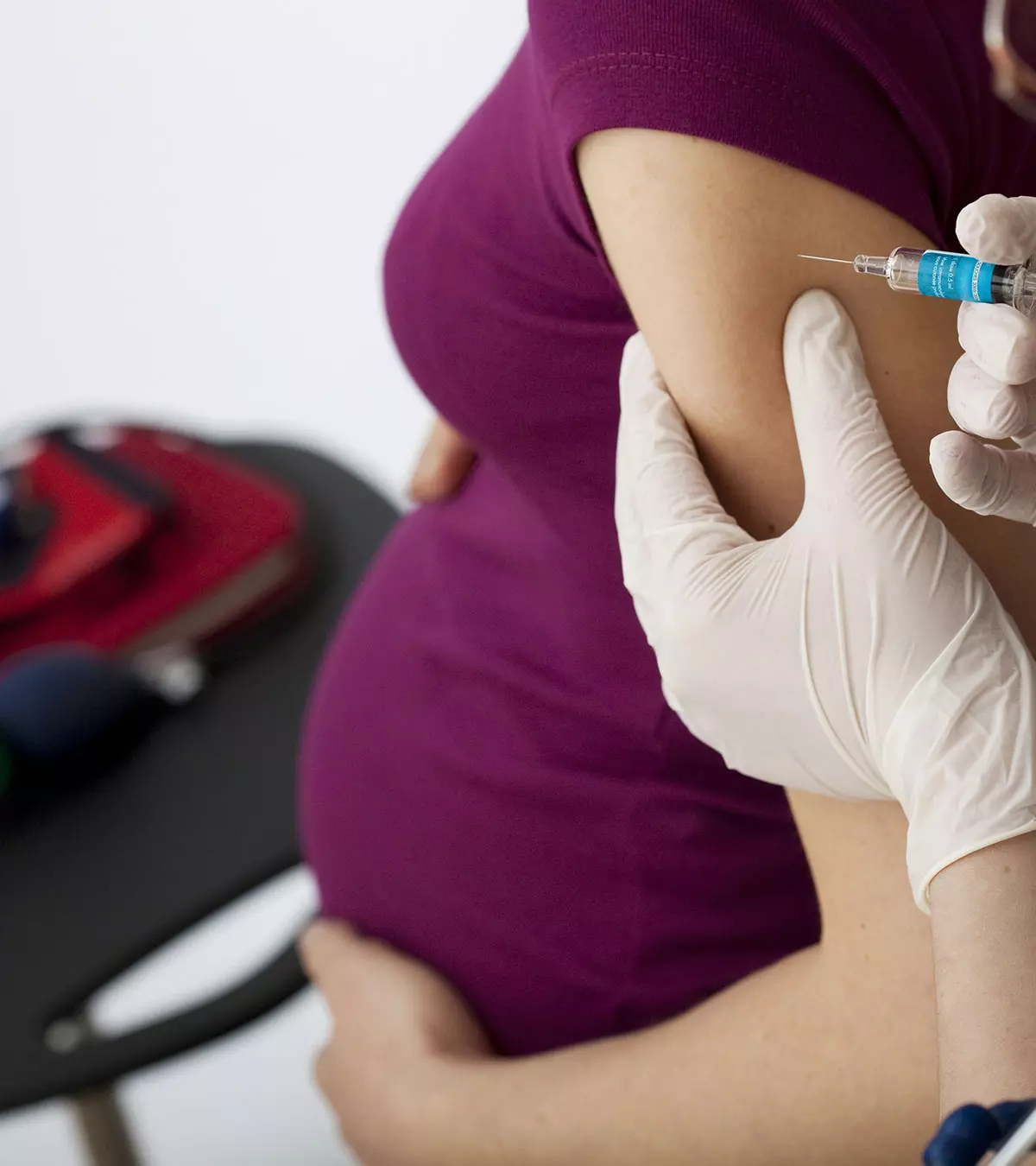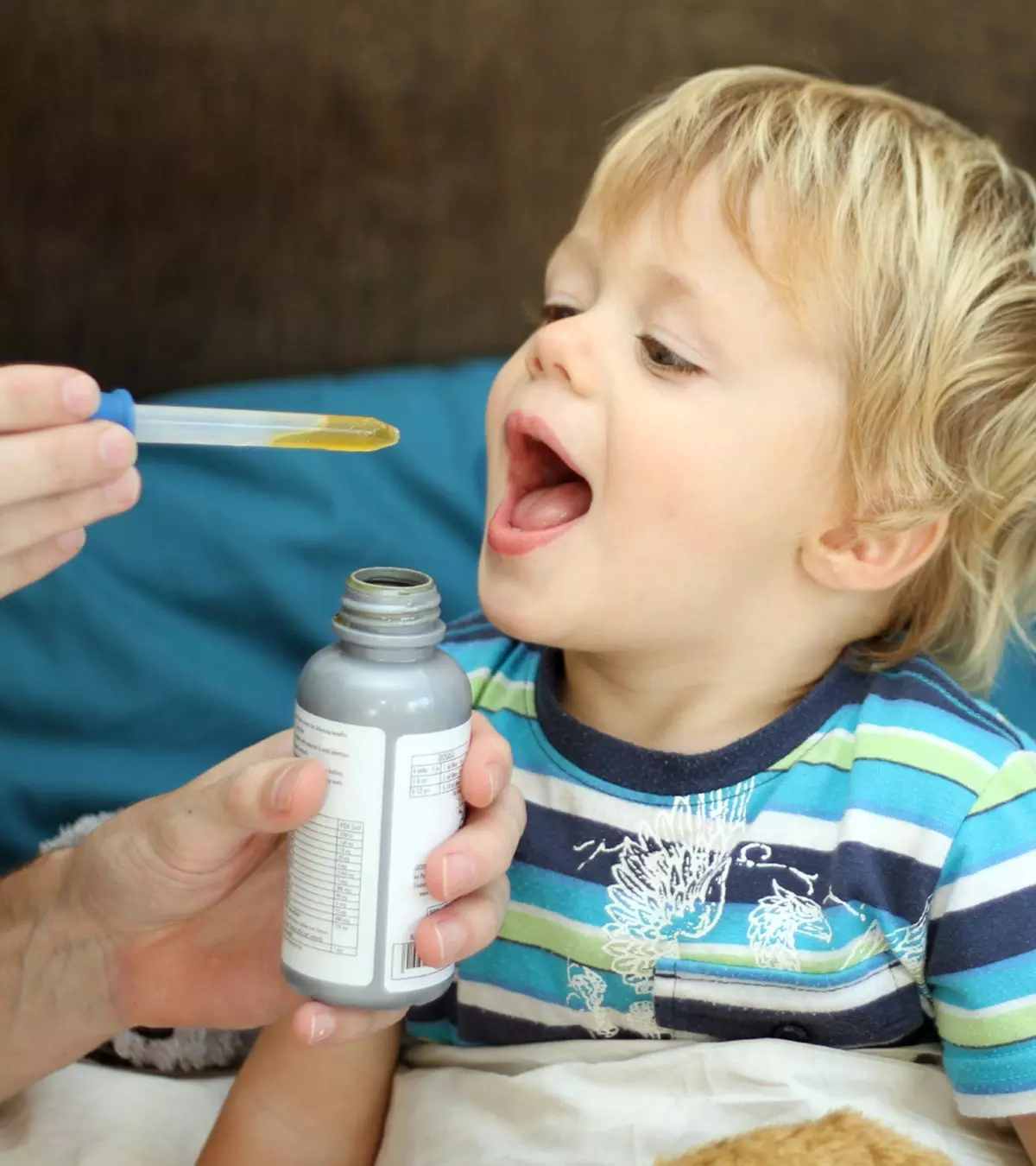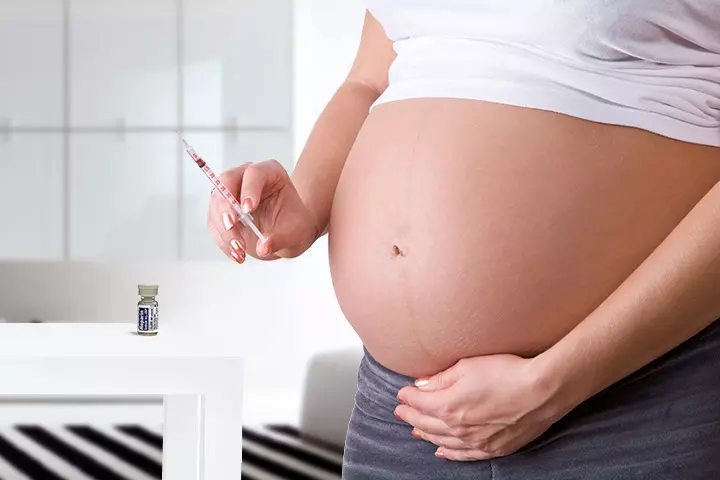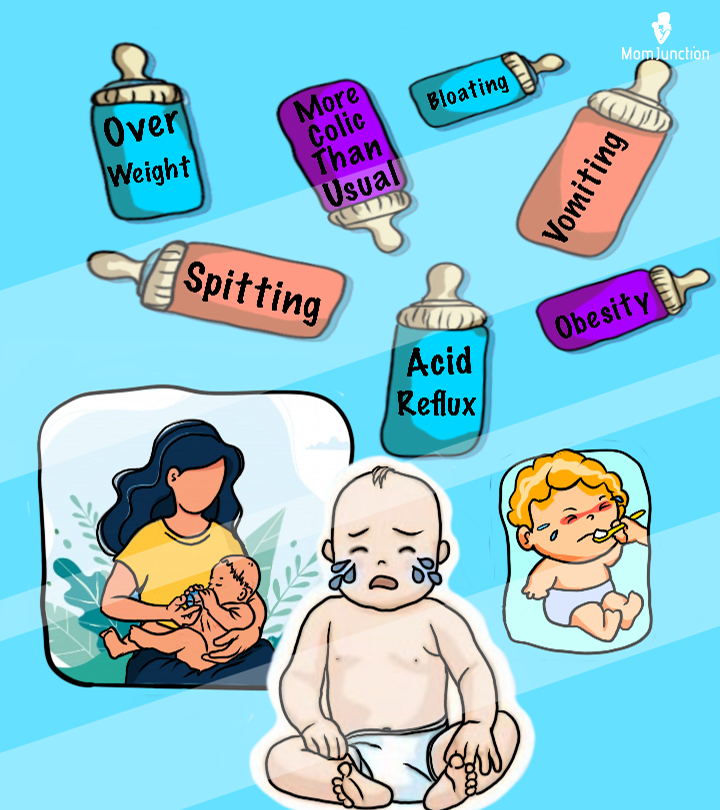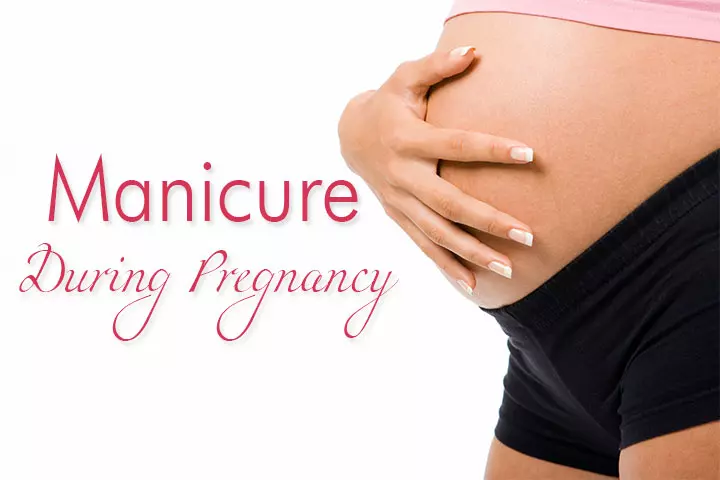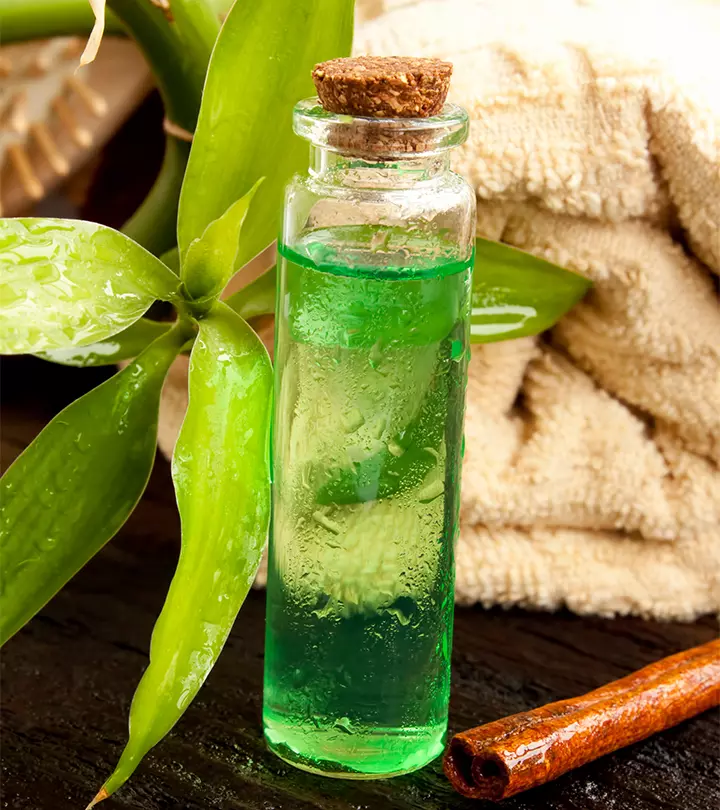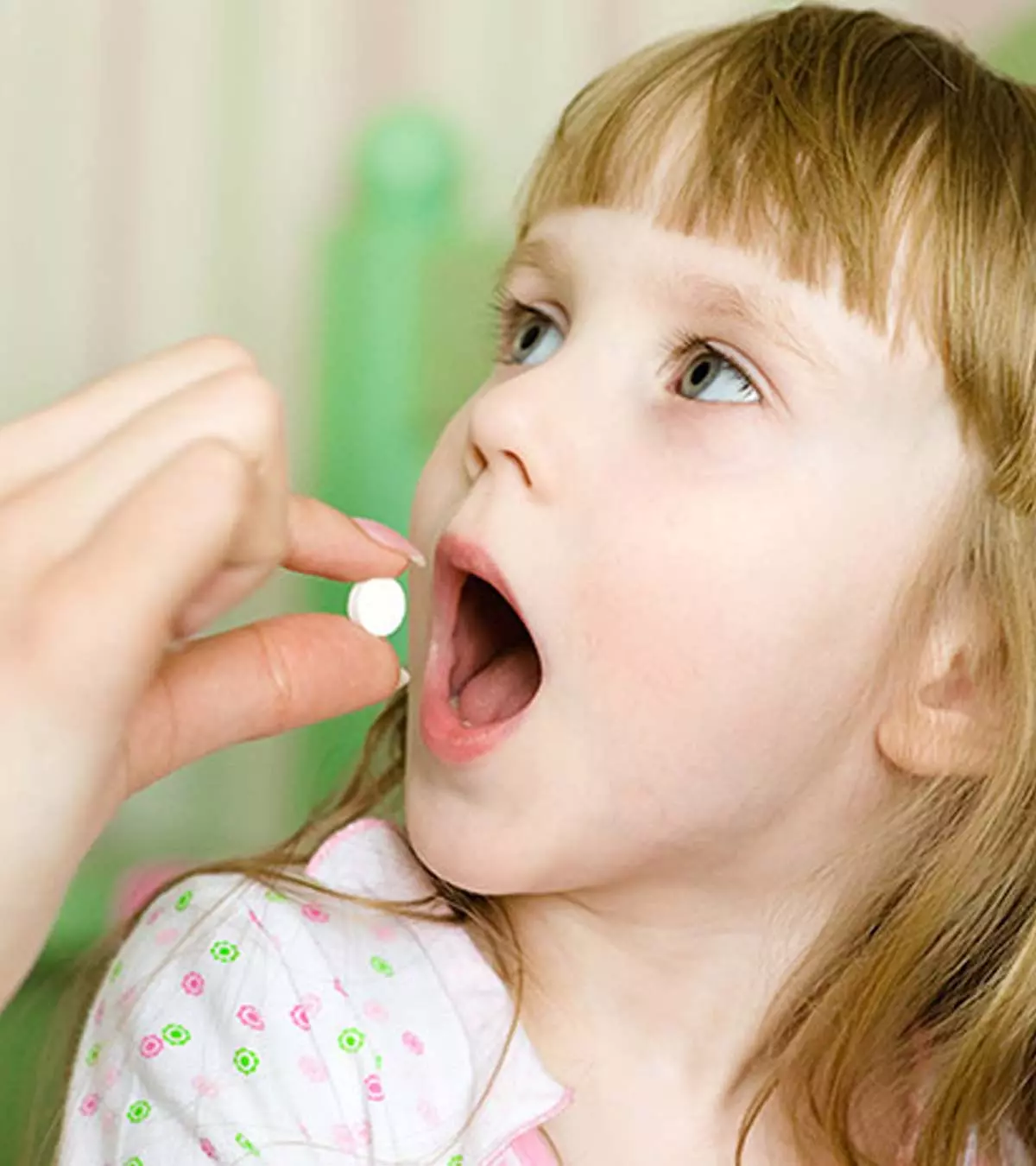
Image: ShutterStock
Biotin, also called vitamin H or B7, is a water-soluble vitamin belonging to the B group of vitamins. Many parents may consider supplementing biotin for children since it plays a crucial role in the body’s metabolic balance of fats, carbs, and amino acids. However, most children can acquire the required biotin from dietary sources. Therefore, it is recommended to give biotin supplements to children as per a pediatrician’s recommendation since not all may need them. Read on to know about the reasons for biotin supplementation in children, the dosage, the risks, and foods rich in biotin.

Key Pointers
- Biotin is a water-soluble vitamin that is also available as a supplement.
- Biotin helps in metabolism, energy production, hair growth, and maintaining healthy skin and nails.
- It is present in many foods, such as bananas, certain meats, cooked eggs, bread, spinach, broccoli, cauliflower, and dairy products.
- The symptoms of biotin deficiency are hair loss, brittle nails, conjunctivitis, rashes, and developmental delays.
- Children do not need biotin supplements unless recommended by a doctor as excessive biotin in the body may cause adverse health effects.
Why Is Biotin Needed For Kids?
Biotin, or vitamin B7 is among the essential nutrients that a child needs. It helps to break down the food and turn it into energy. Dietary intake of biotin for children can also provide the following benefits (1) (2):
- Plays a role in proper growth and development
- Promotes hair health and growth

- Helps maintain skin health and nail strength
- Decreases inflammation
- Supports brain development and brain functions
Biotin is also known for reducing blood sugar levels in diabetic patients and lowering bad cholesterol. However, these benefits are most relevant for adults than children (3).
Dietary intake of biotin can meet the requirements for most kids. Biotin supplements are popularly used for the treatment and prevention of adults or children with hair loss, hair thinning, hair shaft damage, brittle nails, and skin. However, there is not enough scientific evidence to prove these abilities.
 Did you know?
Did you know?Natural Sources Of Biotin

Biotin is present in some amounts in most foods. Biotin-rich foods include (4):
- Meat and organ meat (liver)
- Cooked eggs
- Yeast
- Bread
- Whole-wheat
- Salmon
- Raspberries
- Banana
- Fish
- Seeds
- Nuts
- Sweet potatoes
- Spinach
- Broccoli
- Cauliflower
- Milk and other dairy products
Cooked eggs are a rich source of biotin. The presence of avidin, a glycoprotein in raw egg whites, prevents the absorption of biotin in the digestive tract. Therefore, it is best to serve cooked eggs instead of raw eggs to children to avoid biotin deficiency.
Food processing, such as canning, may also decrease the amount of biotin in foods. However, cooking is not shown to reduce the content of biotin in foods (5).
Recommended Dietary Allowance
Adequate biotin intake is crucial, as deficiency may lead to symptoms such as hair loss, skin rashes, and developmental delays. Understanding these symptoms can help parents identify potential deficiencies early.
The National Institute Of Health (NIH) defines the recommended dietary allowance (RDA) as the average daily intake to meet the nutritional requirements of all healthy people. However, there is inadequate data to establish the RDA of biotin (6). Therefore, an adequate intake (AI) is recommended.
The AI of biotin in micrograms per day for children of various age groups is as follows (7).
| Age | Adequate intake (AI) (mcg/day) |
|---|---|
| 1-3 years | 8 |
| 4-8 years | 12 |
| 9-13 years | 20 |
| 14-18 years | 25 |
| 19 years and older | 30 |
Sources: National Institutes of Health and Oregon State University Breastfed infants receive biotin from breast milk and infant formulas.
If you wish to provide biotin supplements to a baby, then speak to a pediatrician.
Risks And Causes Of Biotin Deficiency In Children
Biotin deficiency is rare. A severe lack of biotin has never been reported in healthy individuals consuming a mixed diet.
There might be a risk of biotin deficiency in the following cases (7):
- Parenteral (intravenous) nutritional support without biotin
- Anticonvulsant medications
- Chronic liver diseases
- Prolonged oral antibiotic therapies
Along with these factors, inborn errors of metabolism that are hereditary or genetic disorders in which the body cannot turn food into energy can also cause biotin deficiency. Examples of disorders that could lead to biotin deficiency are as follows (7):
- Biotinidase deficiency: According to the National Center for Advancing Translational Sciences (NCATS), biotinidase deficiency is an inherited disorder affecting intestinal biotin absorption due to a lack of the enzyme biotinidase in the body, causing secondary biotin deficiency (8). The National Institutes of Health (NIH) reports that biotinidase deficiency is rare and affects approximately one in every 61,067 individuals worldwide (14). If an individual has biotinidase deficiency, the healthcare provider may prescribe oral biotin supplements to cope with the condition. In Canada, the normal daily recommended intake of oral biotin supplements is about 25mcg for children aged 4-6 years and 30mcg for children aged 7-10 years. Children under 4 years of age can be given about 10-20mcg oral biotin supplements daily (15).
A blogger named Tiffany, a mother of two living in Italy, shares about the diagnosis of biotinidase deficiency for her second child, Luk,e when he turned one month old. She says, “We did get some interesting news about Luke from the pediatrician. His newborn screening showed a genetic abnormality. According to that test, he has Profound Biotinidase Deficiency. This means his body does not process biotin at all. We will be consulting a geneticist and a metabolic specialist when we return to the USA to do further testing and discuss the treatment in more depth. But for now, we have been giving him Biotin supplements which will prevent complications as long as he receives them daily for life. Luckily it is an easily treated disorder. I am glad they caught this before Luke displayed any symptoms (i).” - Holocarboxylase synthetase deficiency (HCS)iAn hereditary condition that prevents the body from using biotin adequately. : Reduction in holocarboxylase makes the body unable to use vitamin biotin efficiently. High doses of vitamin B7, around 10-80mg/day, is recommended for this deficiency.
- Biotin transport deficiency: Defects in human sodium-dependent multivitamin transporter (hSMVT) protein could affect biotin transport. Children with this deficiency may require higher doses of vitamin supplements.
- Phenylketonuria (PKU)i An inherited condition that causes the body to accumulate phenylalanine, an amino acid, to harmful levels. : Increased phenylalanineiA naturally occurring amino acid found in foods such as milk, eggs, and meat. amino acids in PKU patients’ blood may inhibit biotinidase. Children with this condition are likely to benefit from a low protein diet rather than biotin supplements.
 Quick fact
Quick factSigns And Symptoms Of Biotin Deficiency In Kids
Although there are plenty of dietary sources of biotin for children, sometimes they may develop biotin deficiency which may impact their growth. However, knowing the sign of biotin deficiency can help in prompt management. Some common signs and symptoms of biotin deficiency may include (6) (9):
- Hair loss and hair thinning
- Brittle nails (onychorrhexis)

- Red scaly rashes around mouth, nose, eyes or in the perineum
- ConjunctivitisiAlso known as Pink eye, it is an inflammation or infection of the transparent membranes that line the eyelid and eyeball.
- Lack of energy
- Paresthesia (prickling or burning) in hands and legs
- Developmental delay in babies
- Seborrheic dermatitisiA skin condition that causes scaly rashes on oily areas such as the face and the scalp.
- Fungal infections, especially candidiasis
Biotin deficiency may cause fat deposits in the face known as “biotin deficiency faces.” Aciduria (increased acids in the urine) and keto lactic acidosis due to increased lactate production and reduced clearance can also be the results of biotin deficiency.
Do Children Need Biotin Supplements?
Biotin deficiency is rare, and supplementation is not often required. Most dietary guidelines recommend meeting nutritional biotin needs through food sources. Therefore, most children may not require biotin supplementation.
If you find any symptoms of vitamin deficiency, take your child to a doctor. They may prescribe biotin supplements if necessary. Biotin supplements can be a single nutrient supplement or multivitamin-mineral supplement (MVM). 30mcg of biotin is present in most of the MVM supplements. However, kids may require lower levels of supplementation (7).
Biotin for kids is usually available as tablets or capsules. There are also liquid-filled capsules and disintegrating tablet supplements available (15). If giving tablets, offer them to your child with a glass of water, milk, or juice and have them swallow it all in one go. You may also crush the tablet and mix it with soft foods like yogurt or honey for younger children (1). Oral and topical (creams or solutions for external use) biotin is available in brand names including, Appearex, Meribin, Nail-ex, and Genadur.
Biotin supplements for kids are also available as chewable treats, such as gummy vitamins (chewable vitamins). Therefore, store them away from kids as the supplements taste like candies, and children might get tempted to have them in more than the prescribed quantity.
Safe Biotin Dosage For Children
The doctor will prescribe a safe biotin dosage depending on the child’s age, weight, and the requirements.
Capsules or tablets can be taken to prevent deficiency. The dosage for oral route biotin may depend on daily dietary intakes. For the treatment of biotin deficiency, the dose is decided based on the severity of the deficiency as prescribed by the pediatrician.
Storage Of Biotin Supplements
You may store biotin supplements at room temperature, away from direct light, heat, and moisture. Store them in a closed container and away from the child’s reach. Do not refrigerate B7 vitamin supplements. Throw away the outdated supplements to avoid accidental intakes (10).
What If You Miss A Dose Of Biotin?
If your child misses a biotin dose, then you may give them as soon as possible. If it is near the next dose (less than 12 hours away), then you may skip the missed dose to avoid double dosing and continue with their regular dose plan (10).
Missing biotin supplements for a few days may not cause any harm since it takes more time for the body to deplete biotin. However, if your child is on the prescription of a biotin supplement due to any health condition, then you may stick to a regular schedule to avoid consequences.
Side Effects Of Biotin Supplements

You may seek emergency medical care if you notice any allergic reactions in your child after consuming biotin supplements. Signs of an allergic reaction include breathing trouble, lip, mouth, tongue, or facial swelling, and skin hives (10).
You may call the pediatrician if your kid has stomach upset or diarrhea related to the side effects of vitamin supplements.
Vitamin B7 toxicity
Excessive storage of vitamins in the body may cause toxic symptoms, and this condition is called hypervitaminosis. Dietary intake from natural food sources may not result in vitamin toxicities. However, it may occur due to excess intake of vitamin-fortified foods and supplements.
Water-soluble B vitamin and vitamin C toxicities are rare compared to fat-soluble vitamins (A, D, E, K). Similarly, biotin overdose is rare since it is a water-soluble vitamin that can be excreted through urine (15). However, high-dose supplements and fortified food with high amounts may lead to hypervitaminosis.
The following can be seen in biotin toxicity (abnormally high storage of biotin in the body) (15):
- Interference with medications: Biotin supplements may interfere with certain medications and may put you at risk of anaphylaxisiA severe life-threatening allergic reaction. .
- Some other signs you may observe due to biotin toxicity include insomnia, increased frequency of urination, and increased thirst.
- In rare cases, excess biotin may cause eosinophilic pleuropericardial effusioniA condition characterized by the presence of more than 10% of eosinophils in the WBCs due to infection, inflammation, malignancy, trauma, or drug-related causes. .
The doctor will decide the precise dosage of oral biotin supplements after considering the child’s age and overall health. Do not provide biotin supplements without speaking to the doctor. Most kids can get their required vitamins and minerals from dietary sources. It is essential to consume a mixed diet balancing all nutrients to avoid deficiencies. You may plan your child’s diet to meet the daily adequate intake of essential vitamins such as vitamin D, vitamin A, vitamin C, and B complex vitamins and minerals such as calcium, iron, etc.
Frequently Asked Questions
1. How long will it take for biotin to work on my child’s hair?
According to research, biotin takes around three months to begin to work (11). However, you should not depend on supplements and wait for them to work for your child. Commit to healthy eating habits, use natural hair care products, and create a work-life balance for your child.
2. Will biotin make my child gain weight?
Presently, no evidence suggests taking biotin supplements can lead to weight gain in children. However, anecdotal reports reveal that people feel an increased appetite after using biotin supplements. It results in overeating, and consequently, weight gain.
3. Can biotin supplements interfere with lab tests or blood work in children?
Yes, taking too much biotin can interfere with the lab test results, such as hormone tests, and wrongly interpreted lab results can have adverse outcomes. Hence, taking biotin supplements under a doctor’s recommendation is advised (12).
4. Can biotin supplements help with my child’s eczema?
Biotin may help with eczema in children. However, this has not been proven through research yet (11).
Vitamin B7 or Biotin for children is important for the healthy growth of hair, energy boost, brain functions, and other functions. This complex vitamin B for kids is easily available in components of a balanced diet. If you observe symptoms such as hair loss, brittle nails, or skin issues, it may indicate biotin deficiency. It is more probable if the child is on parenteral nutrition or has an underlying disorder that causes decreased biotin absorption or use. However, whether your child needs biotin supplements or not should be solely judged by a pediatrician.
Infographic: Top Five Biotin-rich Foods
Biotin-rich foods in your child’s diet ensure they get sufficient amounts of this nutrient. These five biotin-rich foods are nutritious and versatile. They can be used to make several delectable dishes. Stick this to your menu board and share it with fellow moms. Illustration: Momjunction Design Team
Illustration: Is It Safe To Give Biotin To Kids?

Image: Dalle E/MomJunction Design Team
Personal Experiences: Source
MomJunction articles include first-hand experiences to provide you with better insights through real-life narratives. Here are the sources of personal accounts referenced in this article.
i. Luke is 1 Month Old;https://ourcrazylifetogether.wordpress.com/2012/09/12/luke-is-1-month-old/
References
- Biotin for metabolic disorders; Medicines for Children
https://www.medicinesforchildren.org.uk/medicines/biotin-for-metabolic-disorders/#:~:text=All%20the%20cells%20in%20your,or%20being%20sick%20(vomiting) - Vitamin H (Biotin); Mount Sinai
https://www.mountsinai.org/health-library/supplement/vitamin-h-biotin - Mitra Hemmati, et al.; (2013); Survey of the Effect of Biotin on Glycemic Control and Plasma Lipid Concentrations in Type 1 Diabetic Patients in Kermanshah in Iran (2008-2009); NCBI
https://www.ncbi.nlm.nih.gov/pmc/articles/PMC3679599/#:~:text=Biotin%20(vitamin%20B7)%20which%20was,by%20provoking%20guanylate%20cyclase%20activity. - What is Biotin?; Food Insight; The International Food Information Council Foundation (IFICF)
https://foodinsight.org/what-is-biotin-health-food-sources/ - Vitamin B; Betterhealth; Victoria State Government
https://www.betterhealth.vic.gov.au/health/healthyliving/vitamin-b - Biotin; The Office of Dietary Supplements (ODS); The National Institutes of Health
https://ods.od.nih.gov/factsheets/Biotin-HealthProfessional/ - Biotin; Oregon State University
https://lpi.oregonstate.edu/mic/vitamins/biotin#reference51 - Biotinidase deficiency; National Institutes of Health
https://rarediseases.info.nih.gov/diseases/894/biotinidase-deficiency/ - Biotin-Vitamin B7; The Nutrition Source; Harvard T.H. Chan School of Public Health
https://nutritionsource.hsph.harvard.edu/biotin-vitamin-b7/ - Biotin (oral); C.S. Mott Children’s Hospital
https://www.mottchildren.org/health-library/d06867a1 - Ablon Glynis; (2012); A Double-blind, Placebo-controlled Study Evaluating the Efficacy of an Oral Supplement in Women with Self-perceived Thinning Hair; NCBI
https://www.ncbi.nlm.nih.gov/pmc/articles/PMC3509882/ - Biotin may throw off lab test results; Harvard Health
https://www.health.harvard.edu/staying-healthy/biotin-may-throw-off-lab-test-results - Biotin; University of Rochester Medical Centre
https://www.urmc.rochester.edu/encyclopedia/content?contenttypeid=19&contentid=vitaminh - Vitamin H (Biotin); Mount Sinai
https://www.mountsinai.org/health-library/supplement/vitamin-h-biotin - Fatima Saleem and Michael P. Soos; (2025); Biotin Deficiency; NCBI
https://www.ncbi.nlm.nih.gov/books/NBK547751/ - Biotin (oral route); Mayo Clinic
https://www.mayoclinic.org/drugs-supplements/biotin-oral-route/description/drg-20062359 - Karlyle G. Bistas and Prasanna Tadi; (2025); Biotin; NCBI
https://www.ncbi.nlm.nih.gov/books/NBK554493/
Community Experiences
Join the conversation and become a part of our nurturing community! Share your stories, experiences, and insights to connect with fellow parents.
Read full bio of Dr. Surabhi Gupta
Read full bio of Dr Bisny T. Joseph
Read full bio of Swati Patwal
Read full bio of Dr. Joyani Das








